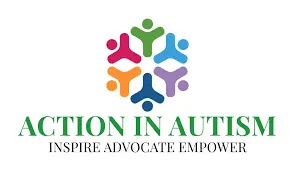Understanding Actions for Autism
Autism spectrum disorder (ASD) is a complex and lifelong developmental condition that affects how a person perceives the world and interacts with others. With the right support and interventions, taking the right action for autism can help individuals with autism lead fulfilling lives, contributing positively to their communities. This guide explores five effective actions for autism that can make a meaningful difference in the lives of those with autism and their families.

1. Understanding the Importance of Early Diagnosis
Early diagnosis of autism is a critical action for autism that ensures timely and effective support. Recognizing the signs of autism as early as possible allows for interventions that can significantly improve developmental outcomes. Early action for autism can include recognizing symptoms such as difficulties with social interactions, delayed speech, and repetitive behaviors. These signs can often be detected as early as 18 months.
Interventions such as speech therapy, occupational therapy, and behavioral therapy are most effective when started early. For instance, Applied Behavior Analysis (ABA) is a commonly used intervention that focuses on teaching new skills and reducing problematic behaviors through positive reinforcement.
It’s important for parents and caregivers to seek a comprehensive diagnostic evaluation from a team of professionals, including pediatricians, psychologists, and speech-language pathologists. The earlier these interventions begin, the better the outcomes for the child, making early action for autism highly beneficial.
For the Best Doctor Consultancy, visit:
2. Educational Support and Accommodations
Education is a fundamental aspect of a child’s development, and providing the right educational support is a key action for autism. Specialized educational programs are designed to meet the unique needs of each child with autism, providing tailored instruction that aligns with their learning style.
Individualized Education Programs (IEPs) are developed in collaboration with teachers, parents, and specialists to ensure that each child receives the necessary accommodations and support to succeed academically. These programs may include modifications in teaching methods, use of assistive technology, and adjustments to the classroom environment, all integral actions for autism.
In addition to academic support, social skills training is often incorporated into the educational plan. This helps children with autism improve their ability to interact with peers and navigate social situations, reflecting another important action for autism.
Parents and educators can refer to the Individuals with Disabilities Education Act (IDEA) for comprehensive guidelines and resources on providing an appropriate education for children with autism.
3. Behavioral Therapies
Behavioral therapies are essential actions for autism that help individuals develop crucial life skills and reduce challenging behaviors. Among these therapies, Applied Behavior Analysis (ABA) is one of the most widely recognized and effective approaches. ABA focuses on breaking down complex tasks into smaller, manageable steps, which are then reinforced through positive feedback.
In addition to ABA, other therapies such as Cognitive Behavioral Therapy (CBT) can be beneficial, particularly for older children and adults with autism. CBT helps individuals recognize and change negative thought patterns and behaviors, leading to improved emotional regulation and social functioning.
These therapies are typically provided by trained professionals, including behavior analysts, psychologists, and therapists, who work closely with the individual and their family to create a personalized treatment plan.
4. Support for Families
Caring for a loved one with autism can be both rewarding and challenging. One of the most important actions for autism is ensuring that families have access to the resources and support they need to navigate the complexities of autism care effectively.
Support groups offer a platform for families to share experiences, seek advice, and find emotional support from others who understand their journey. These groups can be local or online and are often facilitated by professionals who provide guidance on managing daily challenges.
Respite care is another critical resource for families, offering temporary relief to primary caregivers. This allows them to rest, recharge, and attend to other responsibilities, knowing their loved one is in good hands.
Counseling services can also play an important role in helping families cope with stress, anxiety, and other emotional challenges associated with caring for someone with autism. Mental health professionals can provide strategies for managing these emotions and maintaining family well-being.
5. Community Awareness and Inclusion
Promoting community awareness and inclusion is a vital action for autism that contributes to the social and emotional well-being of individuals with autism. Awareness campaigns and educational programs can help dispel myths and promote acceptance of those with autism.
Inclusive practices in schools, workplaces, and public spaces are key to ensuring that individuals with autism feel valued and respected. This includes providing accommodations such as sensory-friendly environments, training staff to understand autism, and creating opportunities for social interaction.
Communities can also organize events that celebrate the strengths and talents of individuals with autism, fostering a sense of belonging and inclusion. By promoting awareness and understanding, we can create a society where everyone, regardless of their abilities, has the opportunity to thrive.
You can visit our more Blogs on: